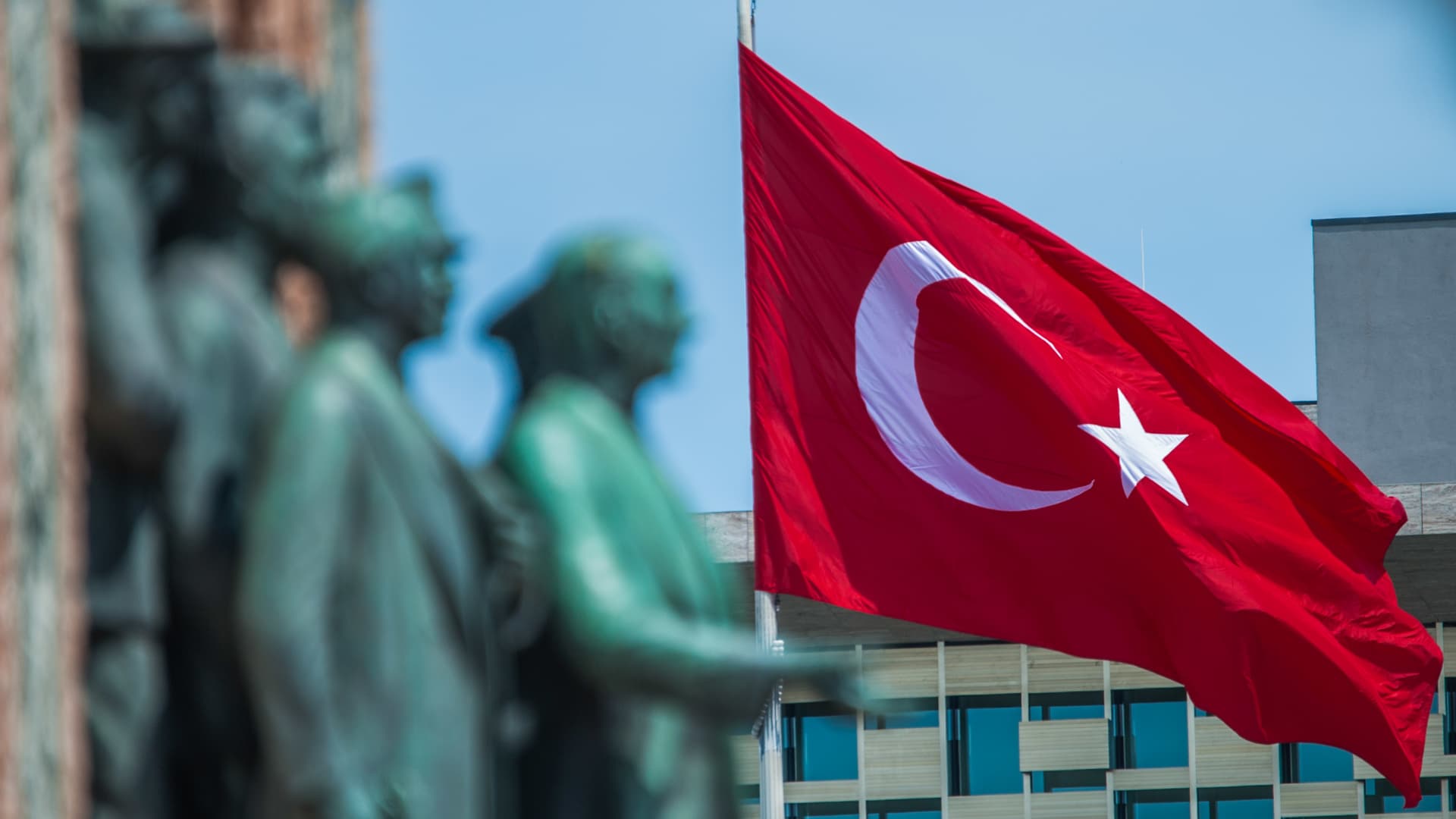Turkey’s Taksim Square, with the figure of Kemal Ataturk, the first president, and the Turkish flag in the background.
Sopa Images | Lightrocket | Getty Images
Turkey’s central bank on Thursday hiked its key interest rate by 250 basis points to 17.5%, coming in below analyst forecasts as the country’s monetary policymakers embark on a long and painful mission to tackle double-digit inflation.
“Monetary tightening will be further strengthened as much as needed in a timely and gradual manner until a significant improvement in the inflation outlook is achieved,” the bank said in a statement, following its interest rate decision.
related investing news

The Turkish lira fell about half a percentage point against the dollar on the news, trading at 26.92 to the greenback. Earlier this week, the lira hit a fresh record low of 26.9 against the dollar over market concerns that the coming rate rise would be less than expected. The currency has lost 30% of its value against the dollar this year.
In June, Turkey lifted its interest rate for the first time in more than two years, after Turkish president Recep Tayyip Erdogan appointed policymakers who had vowed to implement economic orthodoxy to turn around the inflation picture.
Turkey steadily lowered its policy rate from 19% in late 2021 to 8.5% last March, as inflation ballooned, breaching 80% in late 2022 and easing to just under 40% in June.
Traditional economic orthodoxy holds that rates must be raised to cool inflation, but Erdogan — a self-declared “enemy” of interest rates who calls the tool “the mother of all evil” — vocally espoused a strategy of lowering rates instead.
Analysts reacted negatively to the news, with many calling it a mistake.
“Terrible decision and I think a mistake. Again under-delivering,” Timothy Ash, emerging markets strategist at BlueBay Asset Management, wrote in an email note. “It will again play to the script of those saying that Simsek and Erkan don’t really have a mandate to deliver real policy tightening,” he said, naming Turkey’s finance minister and central bank chief, respectively.
While the move “marks the second step in the abandonment of an ultra-loose monetary policy,” the 650 basis point rate hike in June disappointed markets that had “hoped for shock therapy after a post-election overhaul in Erdogan’s economic team,” said Bartosz Sawicki, a market analyst at Conotoxia Fintech.
“Similarly, today’s decision comes in below the majority of market forecasts. As a consequence doubts prevail whether a gradual tightening is enough to restore credibility and re-establish price stability after years of pursuing unorthodox policies.”
Despite the dollar to lira rate soaring in the time since Erdogan’s re-election in May, “the central bank is unfazed by the most recent slide of the lira,” he added, judging from its lower-than expected rate rise.

